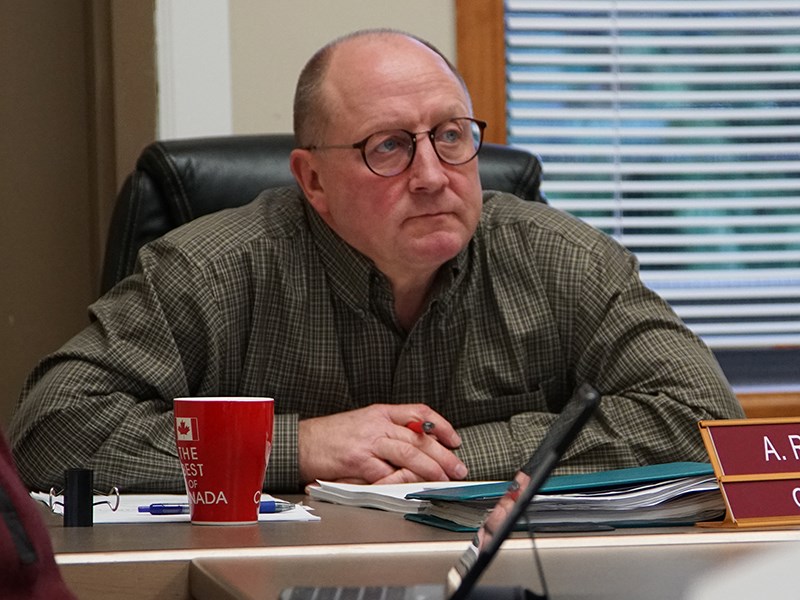Memos written by qathet Regional District directors appear to be creating a backlog for staff, but directors have decided to postpone a motion regarding the matter.
At the January 16 committee of the whole meeting, directors were presented a recommendation that read: that the committee of the whole recommend the board observe the protocol of announcing a notice of motion or presenting a meritorious argument for new business desired by a director, with a subsequent referral to staff to produce a report, as is consistent with Robert’s Rules of Order and the qathet Regional District procedure bylaw.
In discussion on the recommendation, Electoral Area B director Mark Gisborne said he had issues with a few items in the memo from chief administrative officer (CAO) Al Radke. Gisborne said his understanding is, from motions growing out of reports for communication, a motion may grow out of a presentation of a written communication to the assembly. He said there are a number of other examples in Robert’s Rules of Order that outline how a written communication can come before the assembly.
“My understanding is that a director’s memo is just that, a memo,” said Gisborne. “It’s not a report, it’s not a statement of fact, it’s more a correspondence from a member of the board.”
He said if the way the board wants to go is that a director cannot bring forward a director’s memo to the board, and that the director can only make an argument verbally, there is nothing that prevents a director from submitting a piece of correspondence as a member of the public.
Radke said the regional district has hired staff members to research and report back to the directors.
“If not, then why do you have staff?” said Radke. “Based on some of the things we’ve been seeing transpire, the corporate officer can comment on how much additional paperwork flows, and the things this is doing to staff.”
Corporate officer Michelle Jones said over the past six months, administration has received 15 directors’ reports that have required staff time. She said that has not been written into the staffing work plan.”
“We are pushing other projects aside,” said Jones.
Electoral Area E director Andrew Fall said director memos overwhelm staff capacity and distract energy from priorities, but he said he had reservations about the proposed solutions.
Fall asked Radke if the idea was to limit written submissions from directors for their proposed motions, and then the board would then vote to refer to staff for a report.
Radke said the intention was, in the majority of cases, the report should be referred to staff to research and come back to the board with a topic under discussion.
Fall said the practice the board has been following is quite common in BC. He said Robert’s Rules of Order are only applicable in cases not provided for under the regional district’s procedure bylaw.
“Since our procedure bylaw provides for director’s submissions, Robert’s Rules are not relevant,” said Fall.
Fall said in addition to the procedure bylaw, the regional district could consider developing a best practices guideline for director submissions. He said since the last election, every director has been the author or co-author of at least one memo.
He added that he would like to move that this item be postponed until proposed revisions to the board’s procedure bylaw are considered.
City of Powell River director CaroleAnn Leishman said she was in favour of the original motion and that it gets the point across that it is incumbent upon the board to respect the work plan and strategic priorities the board has in place.
“Yes, there are emerging issues that are necessary to bring forward in a timely manner but I personally would like to see things moved to strategic planning sessions,” said Leishman. “I just find that 15 director’s memos in six months is excessive.”
The motion to postpone carried.



